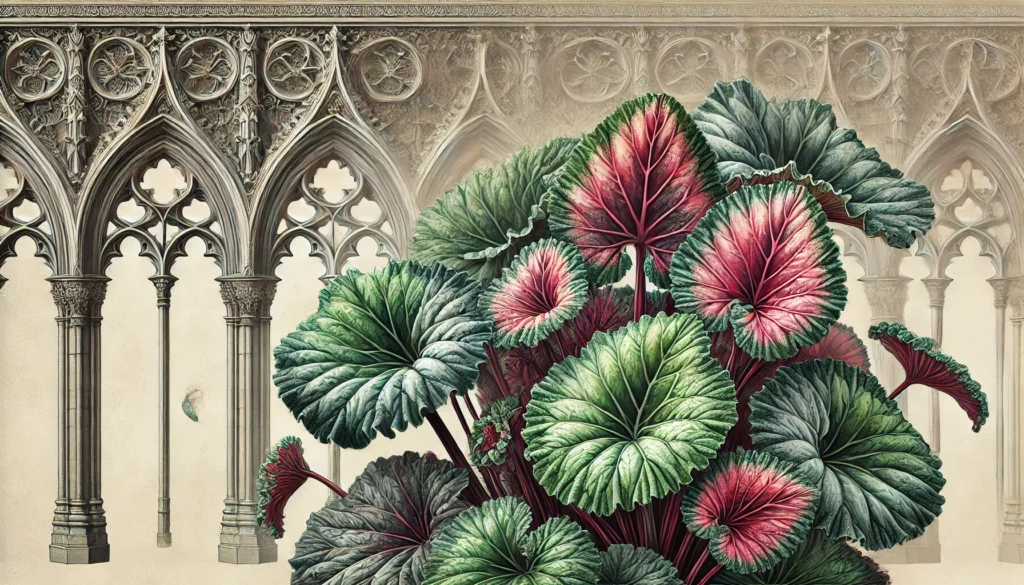

Home » Cat Plants » How Dangerously Toxic is the Rex Begonia Plant for Cats?

The Rex Begonia (Begonia rex-cultorum) is a popular houseplant known for its stunning foliage. However, cat owners should be aware that this plant is toxic to cats if ingested. Rex Begonias contain soluble calcium oxalates, which can cause various health issues in felines.
These plants are commonly found in households as ornamental indoor plants.
Ingestion may cause mild gastrointestinal upset, but is generally not life-threatening.
Ingestion can result in mild symptoms like vomiting, diarrhea, or drooling. Rarely fatal but may require veterinary care.
Eating these plants can lead to more pronounced symptoms like abdominal pain, lethargy, or difficulty breathing. Veterinary intervention may be necessary.
Ingesting even small amounts can cause severe symptoms like organ damage, seizures, or cardiac failure without rapid treatment.
All parts of these plants are extremely poisonous to cats and can quickly lead to death, even with immediate veterinary care.
** Please note: Please note that toxicity level can vary based on the amount ingested and the specific cat. It's always best to keep these plants completely inaccessible to cats and seek immediate veterinary care or call the poison hotline if you suspect your cat has ingested any part of a toxic plant.
If your cat has ingested any part of a Rex Begonia plant, they may experience several symptoms due to the toxic compounds present in the plant. The most common signs of Rex Begonia toxicity in cats include:
In severe cases, ingesting large amounts of the plant may lead to more serious complications such as kidney failure.
If you suspect your cat has ingested a Rex Begonia plant, it is crucial to seek veterinary care immediately. Your veterinarian will likely follow these steps to diagnose and treat your cat:

A: Yes, the Rex Begonia plant is toxic to cats due to its high concentration of calcium oxalates. Ingestion can cause vomiting, drooling, and difficulty breathing, so immediate veterinary care is recommended.
A: If your cat eats a Rex Begonia, symptoms like vomiting, difficulty swallowing, and swelling of the mouth or throat may occur. These reactions result from the oxalate crystals in the plant, which can irritate the cat’s tissues.
A: While Rex Begonia poisoning is not typically fatal, it can lead to serious discomfort and health issues for your cat. Quick treatment can prevent more severe symptoms like dehydration and prolonged gastrointestinal distress.
A: To keep your cat safe, remove or keep toxic plants like the Rex Begonia out of reach, especially in areas where your cat frequently roams. Additionally, providing safe, non-toxic plants such as cat grass can deter them from nibbling on harmful varieties.
A: Yes, most Begonia varieties, including the Rex Begonia, are toxic to cats. The plant’s underground parts are particularly dangerous due to the presence of calcium oxalates, which can cause irritation and illness.
A: If your cat shows symptoms of Begonia poisoning, such as vomiting or difficulty breathing, contact your veterinarian immediately. Early intervention is critical to avoid severe reactions from the toxic components of the plant.
Rex Begonias are a group of hybrid begonias that were first developed in the mid-19th century. They are derived from the species Begonia rex, which is native to the forests of northern India. Over time, plant breeders have created numerous cultivars with a wide range of leaf colors, patterns, and textures, making them popular ornamental plants worldwide.
Please note: The information shared in this post is for informational purposes only and should not be considered as veterinary medical advice.
🐾 A hilarious or heart-melting cat video
🐾 Our latest paws-on review of a cool cat toy